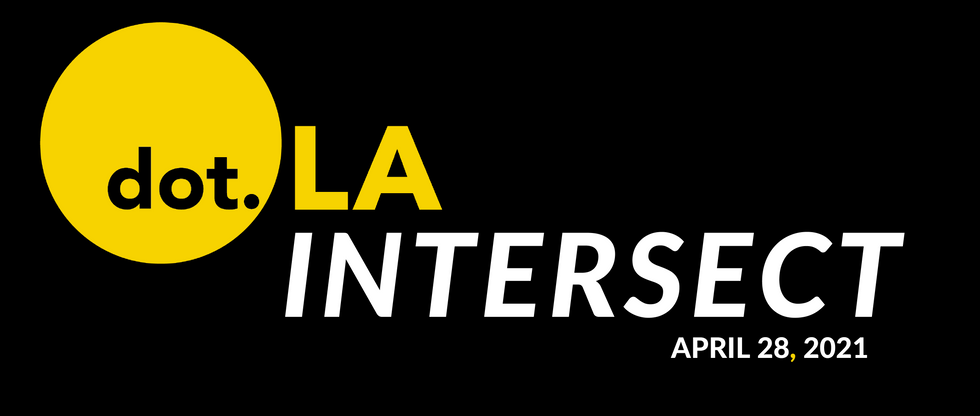Riot Games Breaks Up Exclusive Deal With PlayVS For High School ‘League of Legends’ Tournaments
This is the web version of dot.LA’s daily newsletter. Sign up to get the latest news on Southern California’s tech, startup and venture capital scene.
Riot Games just flipped the script on high school esports in a way that could disrupt one local company’s lucrative tournament organizing gig.
Until recently, the only way a high school student could play the popular multiplayer online esport “League of Legends” in school-sanctioned championships was through a Santa Monica-based company called PlayVS, which enjoyed an exclusive contract with “League of Legends” publisher Riot Games that allowed it to act as the sole provider of high school esports events for the title.
But this week, Riot made an unexpected decision to open the “League of Legends” universe up to other esports event organizers, including several nonprofits who want to run tournaments of their own. “After significant discussion, we’ve determined that the best way to set up high school esports for success is to further open, rather than narrow, avenues for competition and organic growth,” Riot said in a statement Wednesday.
This puts PlayVS in a difficult position as it struggles to ward off accusations that it has a monopoly over the amateur esports ecosystem. The company, which has raised more than $100 million in funding since launching in 2018, inked a multi-year deal with Riot Games in 2020 to be the exclusive operator of high school “League of Legends” competitions. It has struck exclusive agreements with schools in at least 23 states to run various esports tournaments, though “League of Legends” remains one of its biggest draws.
Since being officially recognized as a sport by the National Federation of State High School Associations (NFHS) in 2018, a whopping 43% of NFHS-sanctioned high schools across the country have launched esports teams on PlayVS’s platform—with company CEO Delane Parnell vocal about his goal to expand further into all 50 states. Being virtually the only game in town has allowed PlayVS to set its own pricing, charging each student player $64 per season. But with Riot’s decision likely to eat away at its market share, PlayVS could be forced to adjust its fees.
When I first spoke to Parnell back in 2018, he wasn’t focused on expanding into college esports since he thought there was more value in cornering the truly amateur high school market first. But at a dot.LA summit last April, Parnell said he was open to creating a “digital playground” where people in college or older could play. If Riot allows more competitors to flood the high school esports market, PlayVS could look to expand into college esports sooner rather than later.
PlayVS, for its part, responded to Riot’s decision by describing it as “an agreement that allows us to continue to operate the title while supporting their new goals.” Diplomatic, to say the least. — Samson Amore
A New $64M Fund for Health Care Startups
Wavemaker 360 Health, the Pasadena-based early-stage health care VC firm, has closed its $64 million second fund which will look to invest in 40 to 50 early-stage startups across the U.S. health care spectrum.
LA Ecommerce Startup Gander Raises $4M
Black female-led Gander collects user-generated videos to give online shoppers a better idea of what a product looks like in real life.
Faraday Future Is Planning a New Factory in China
The new plant in China will produce Faraday’s second and third vehicle models, and could help the automaker cut costs and lead times and deal with supply chain issues.
TikTok Will Tell You To Take a Break With New Screen Time Tools
TikTok is rolling out new tools to help users limit how much time they spend on the video-sharing app—including one aimed at teens who may be addicted to social media.
Listen Up! Casa Verde's Karan Wadhera on Cannabis Investing
On this episode of the LA Venture podcast, Casa Verde Capital’s Karan Wadhera talks about the cannabis industry, emerging markets and working with music legend Snoop Dogg.
Sponsored: Recurring Revenue Conference Returns to Culver City
Join 500-plus entrepreneurs, executives and investors on June 23 at the Culver City Hilton for the Recurring Revenue Conference hosted by Sutton Capital Partners. Whether you are a SaaS or subscription business, or if customer retention is critical for your success, this is the premier Southern California event to learn from tech pioneers.
Discount: dot.LA readers can register with this link using promo code DOTLA229 to save over $200 on in-person attendance.
What We’re Reading Elsewhere...
- Celebrity chef Curtis Stone launches Gathar, a platform for booking private chefs.
- Azolla Hydrogen partners with Cal State LA on a hydrogen production unit demonstration.
- Kevin Lynch’s iconic Kobe Bryant photos are set to debut as an NFT series.
- Santa Monica-based Autonomy brings its EV subscription service to California's high desert.
----
How Are We Doing? We're working to make the newsletter more informative, with deeper analysis and more news about L.A.'s tech and startup scene. Let us know what you think in our survey, or email us!
- Riot Games Acquires Gaming Studio Hypixel - dot.LA ›
- PlayVS Raises $10.5M Making ESports Varsity Sports - dot.LA ›
- Patron's Jason Yeh On 'The Future of the Consumer Internet' - dot.LA ›




